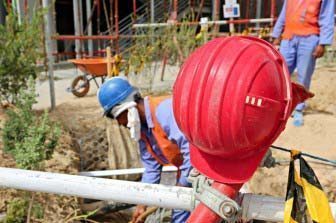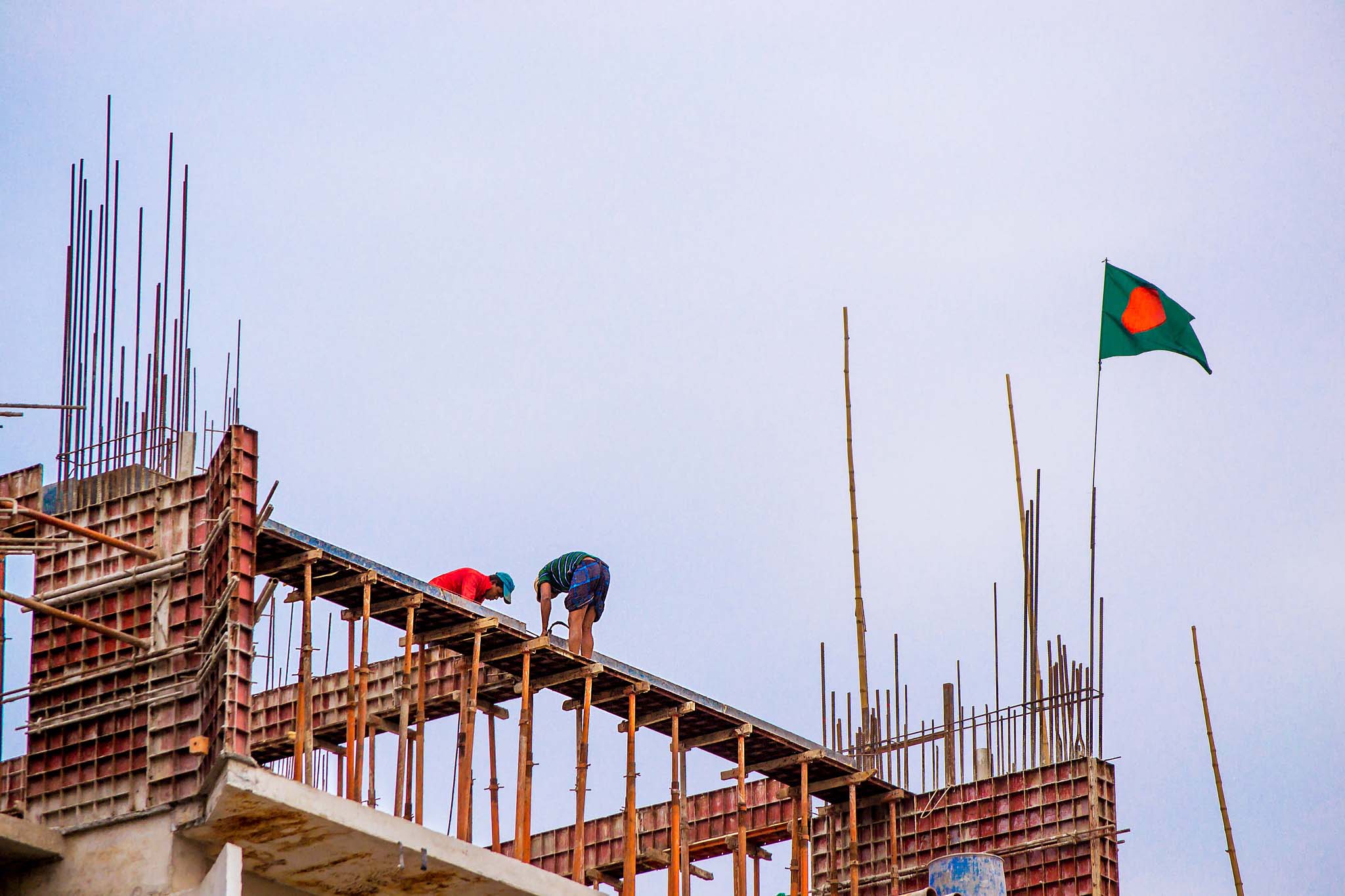
Qatar labor officials have approved work visa applications for 50,000 Bangladeshis in a move that would further bolster one of Qatar’s largest expat communities, officials at Bangladesh’s embassy in Doha have said.
At the same time, a Bangladeshi minister has announced that Qatar agreed to force local companies to only hire nationals who are registered in a government database in their home country.
The move would theoretically reduce the role of recruiters, who often charge migrants illegal fees and make false salary promises.
The announcements follow a visit to Qatar by Khandker Mosharraf Hossain, Bangladesh’s minister for expatriates’ welfare and overseas employment, late last month.

Speaking to Doha News today, embassy officials said the 50,000 individuals already have job offers in Qatar, but had been waiting for the government here to approve their applications.
Most will be working in the construction sector and will gradually arrive over the next three months, officials said.
“We’re happy to provide more workers,” Bangladeshi ambassador Syed Masud Mahmood Khundoker told Doha News.
He said the fact that most of his country’s citizens are Muslim and have a reputation for being hard workers and quick to learn new languages is “prompting Qatar to recruit in larger numbers” from his home country.
Community in context
There are approximately 220,000 Bangladeshis living in Qatar, making it the fourth-largest expat community behind India, Nepal and the Philippines.

Embassy officials said between 7,000 and 8,000 new Bangladeshis come to Qatar each month, but it is not clear how quickly the community is growing here, because figures for how many people return home each month were not available.
Between 60 to 70 percent work of the expats work in the construction sector. The remainder includes engineers, managers, Islamic scholars and approximately 9,000 domestic workers, according to Mohammed Serajul Islam, the embassy’s labor counselor.
Speaking to Doha News, he said there has been a push to bring over more doctors, nurses and other professionals.
“Every year, thousands of (young people) graduate in our country,” Islam said.
High unemployment
Last year, the Economist Intelligence Unit found that despite having a relatively low overall unemployment rate of 5 percent, the jobless rate among recent university graduates in Bangladesh is a staggering 47 percent.
That rate is not uniform across all disciplines, as those who hold engineering and other technical degrees are generally in higher demand.
Helping those individuals find work abroad allows them to apply their education, gain experience and boost Bangladesh’s economy. However, salaries for its citizens in Qatar remain relatively low.

Like India, Nepal and several other countries, Bangladesh has negotiated minimum wage provisions with the Qatar government for its nationals.
Domestic workers must receive QR900 a month while individuals working in unskilled position are entitled to QR1,000 a month, according to Islam. Semi-skilled workers must be paid at least QR1,200, he added.
Skilled workers generally earn more than manual laborers, which enables them to send more money home. The World Bank estimates that remittances made up 9.2 percent of Bangladesh’s GDP in 2013.
Between July 2013 and June 2014, overseas workers sent more than US$14.23 billion home, according to the Bangladesh Central Bank.
Contract substitution
Some local recruitment firms have previously told Doha News that it’s common for migrant construction workers in Qatar to sign two contracts, each containing different salary figures.
One would state the minimum wage needed to secure a visa, while the other would contain a lower number that the worker actually receives.
Islam said he did not believe that this form of contract substitution occurs among Bangladeshi expats in Qatar.

He said the embassy receives one or two complaints from its expats a day, which he characterizes as “not high,” given the size of the Bangladeshi population in Qatar.
He added that the most common grievance comes from individuals who have paid unscrupulous recruiters in Qatar for work visas that never materialized for friends or family members back home.
He said he’s visited several labor camps in the Industrial Area, where human rights advocates have frequently documented overcrowded and unsanitary conditions.
However, Islam said he was “satisfied with what we saw” at the camps he inspected.
His comments were echoed by his ambassador when asked by Doha News about ongoing reports of sponsors mistreating and not paying low-income migrants.
“We have not received any serious allegations from our people,” Khundoker said. “No country is perfect … (but) Qatar’s efforts are very sincere to give a better life to the workers.”
Recruitment fees
Islam said reducing migration costs for individuals, primarily by eliminating “intermediaries and brokers” who facilitate the recruitment process, is one of the priorities for the embassy’s labor department.
To this end, Hossain – Bangladesh’s minister for expatriates’ welfare and overseas employment – said he successfully convinced Qatar’s labor minister to force local companies who hire his country’s citizens to go through a centralized government system.
Bangladesh’s Bureau of Manpower, Employment and Training allows individuals interested in working abroad to register their details in a digital database that is then made available to recruiters in foreign countries.
The hope is that the system would reduce opportunities for recruiters to charge migrants illegal fees, which often forces individuals to borrow money to finance their trip abroad.
“To remove middlemen in the host country such as Qatar, I proposed to Qatar’s Minister of Labour to recruit Bangladeshi labour directly through the embassy of Bangladesh so that Qatari employers can access the database of 2.2 million job seekers for employment and he agreed,” Hossain told the Qatar Tribune.
Amnesty International researcher James Lynch told Doha News that he had not seen a copy of the proposal. However, he said any efforts to make the recruitment process more transparent and reduce the involvement of middlemen is a welcome step.
“It is well-known that across the Gulf, many Bangladeshi workers arrive having been deceived and having paid some of the highest recruitment fees among any nationality.”
Thoughts?







